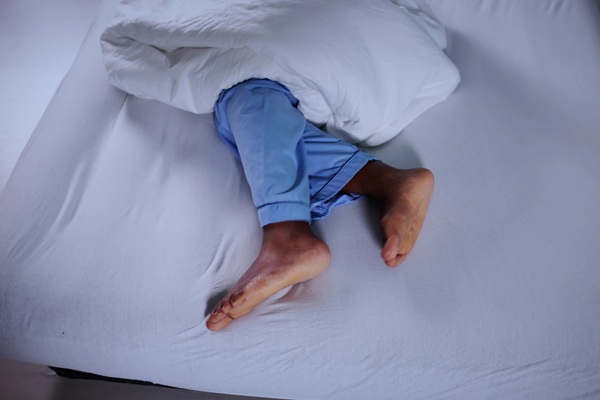Visit a Psychiatrist for OCD Treatment

While obsessive-compulsive disorder (OCD) can often feel overwhelming, it is possible to find relief from its symptoms. A psychiatrist can provide OCD treatment in a variety of forms. Whether you are looking to try medication, begin exposure and response prevention therapy, or are unsure where to start, a psychiatrist can help you find a treatment plan that works for you.
What is OCD?
According to the Diagnostic and Statistical Manual of Mental Disorders, Fifth Edition (DSM-5), OCD is defined as either having obsessions (recurrent, unwanted thoughts), compulsions (repetitive behaviors meant to get rid of the obsessions, prove them false, or otherwise neutralize them), or a combination of the two. A combination is the most common. The obsessions and compulsions must be time-consuming and harm the client's daily life to be considered OCD.
Obsessions can range from a fear of contamination to a fear of harming others, being in the wrong relationship, or acting immorally, among others. Compulsions may include touching items in a particular order, doing a task several times, asking for reassurance that obsessions are false or repetitive handwashing, checking, or praying, etc. It is not simply about wanting organization for one's possessions or routine.
OCD treatments from a psychiatrist
If a psychiatrist determines that a client has OCD, they may recommend a few types of treatment. The most common OCD treatment is a combination of medication and exposure and response prevention (ERP) therapy. However, if the client does not see their symptoms improve, the psychiatrist may recommend alternative treatments.
Medication
Prescription medication is a safe, effective way to manage OCD symptoms. It can reduce the anxiety associated with obsessions, making it easier to confront them in therapy and not respond to them in day-to-day life. A psychiatrist may prescribe selective serotonin reuptake inhibitors (SSRIs), antipsychotic medications, or tricyclic antidepressants. Citalopram, clomipramine, escitalopram, paroxetine, and sertraline are the most common.
ERP therapy
Exposure and response prevention focuses on helping clients overcome their obsessions by exposing them to whatever triggers them (such as a dirty doorknob). Once triggered, the client will then work to sit with the resulting anxiety until it fades. They will also either reduce the time spent on a compulsion, delay it, or forgo it altogether.
The end goal of ERP is to teach the client how to better respond to obsessions so that they can break the cycle of OCD. The more a person engages in compulsions, the worse the obsessions and compulsions become in the long run. This is because the brain will falsely learn that an obsession is a threat. Therefore, to manage OCD, the client will need to fight back against compulsions and remember that obsessions are not emergencies.
Transcranial magnetic stimulation (TMS) for OCD
Transcranial magnetic stimulation, or TMS, is a brain stimulation technique that uses magnetic coils and the brain's electrical activity to treat mental health conditions. The U.S. Food and Drug Administration has approved it as an OCD treatment. However, a psychiatrist is unlikely to recommend TMS before the client has tried ERP and medication. They may even recommend pairing ERP with alternative therapies before trying TMS.
Find peace from OCD
OCD may be a chronic, isolating mental disorder, but you are not alone. Our New York psychiatrist will work to bring you relief with OCD treatment. Call today to schedule a consultation.
Request an appointment here: https://www.hopetmsofny.com or call Hope TMS and Neuropsychiatric Center at (646) 578-8152 for an appointment in our New York office.
Check out what others are saying about our services on Yelp: OCD Treatment in New York, NY.
Recent Posts
Restless leg syndrome can make evenings difficult by creating an urgent need to move the legs when the body tries to rest. Considering symptoms like crawling or pulling often intensify at night, sleep quality can drop, and daytime energy can follow. With the right support, many people can manage their symptoms and get a good…
PTSD syndrome can shape your daily experiences in significant ways, from your emotional balance to your physical health and personal stability. Symptoms of PTSD can become an invisible burden that affects your routine and interpersonal connections. While these symptoms vary from person to person, they can impact every corner of your life without the right…
Adult ADHD therapy supports individuals navigating challenges with focus, time management, and emotional regulation. While attention deficit hyperactivity disorder, or ADHD, is commonly diagnosed in childhood, its symptoms can persist into adulthood, often interfering with careers, relationships, and daily tasks. Professional therapy offers a structured approach to managing these difficulties and building long-term strategies for…
Transcranial magnetic stimulation, also known as TMS treatment, is an innovative and noninvasive therapy for several mental health conditions. By using magnetic fields to stimulate specific areas of the brain, TMS is an effective treatment for cases where traditional methods have provided little to no relief. It is important to know which mental disorders are…


